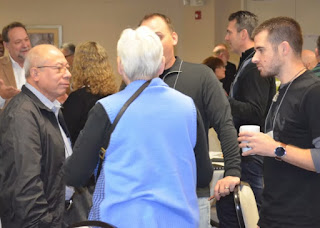What are you afraid of? Do you love scary movies and look for monsters around every corner? Do you watch the news and fear that every terrible scenario you see could happen to you? Have you experienced difficulty and fear for what is next? We are all afraid sometimes.
It’s September, which means it’s the time of year that I go back in to see my doctor to check on the status of my former Thyroid Cancer. After 12 years of dealing with this, I rarely think about the possibility of recurrence… until September. Once I know that it’s time to get checked again, the old fears come back.
So what do we do about our fears? I think we have to be a little careful about what our fears influence us to do in our lives. As Presidential elections loom, we are being told by both parties that we need to fear the other. In fact, it seems that fear is the main manipulator being used by both candidates to ensure that you won’t vote for their opponent. But should we base our decisions on our fears?
I was reading recently in Exodus about the stages that led to God’s leading His people out of Egypt. If you know the story, Joseph initially brought his family to Egypt to save them from the great famine all throughout the Middle East. There in Egypt, God’s people began to grow in large numbers. By the first chapter of Exodus, the Jews were getting to be so great in number that the Pharaoh began to fear an uprising.
“’Look’, he said to his people, ‘The Israelites have become far too numerous for us. Come, we must deal shrewdly with them or they will become even more numerous and, if war breaks out, will join our enemies, fight against us and leave the country.’”
What I noticed for the first time as I read this again was that there was no indication that the Israelites were a threat to Egypt. But in his fear, Pharaoh made them slaves and treated them harshly, just in case.
Making our decisions out of fear never seems to work well for anyone. Fear keeps some from going to the doctor when something isn’t right. Fear leads some to mistreat those of a certain race or nationality because they “look like” a criminal or terrorist. Fear gives some the excuse they need to lose all compassion for those in need. And we need to be ever careful of allowing our fears to outweigh our calling from Christ.
Jesus never acted out of fear. Instead, He called us to live out of love and grace. Jesus invited us to a new radical way of living that didn’t include fear in the equation.
After all, what is there to fear when God is for us and life is eternal?
Don’t give in to your fears. Don’t let fear take away your compassion. Don’t let fear steal your love for others. Don’t let fear keep you from living the life God created you for.
Instead, let’s live out of love; with compassion for others, mercy for those that could harm us, and even generosity for those that hate us. God didn’t call us to be afraid, He called us to be courageous. And He promises to be with us. What is there to fear?






